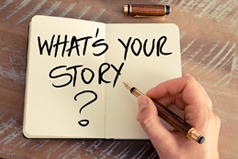CoDA GUIDELINES FOR ANONYMITY IN SOCIAL MEDIA
NOTE: The following Guidelines were originally approved at the 2015 CoDA Service Conference (CSC) for Fellowship use, this updated version was approved by CSC in 2021.
PURPOSE: In the CoDA fellowship many members have expressed a need to understand issues around anonymity and social media. The statements below are an interpretation by fellowship members on how the CoDA Twelve Traditions apply to the use of social media by CoDA members, approved at the 2015 CSC. Our hope is that these guidelines serve as healthy boundaries for members when utilizing social media. These are the guiding traditions to the guidelines:
TRADITION TWELVE: “Anonymity is the spiritual foundation of all our Traditions, ever reminding us to place principles before personalities”
TRADITION ELEVEN: “Our public relations policy is based on attraction rather than promotion; we need always maintain personal anonymity at the level of press, radio, films, television and all other public forms of communication.”
The principle of anonymity is essential in the Codependents Anonymous fellowship at all levels. As the spiritual foundation of all traditions, the respect for anonymity is paramount for CoDA members to uphold. Types of communications, especially social media, can easily result in breeches in anonymity. It is our responsibility to not break our anonymity to people outside of CoDA, with a few exceptions, such as sharing with a friend or family member. One purpose of anonymity is that although we can share our experience, strength and hope, no one person speaks for CoDA. By not having “faces” and names to CoDA, we continue to respect that we are a collective as a fellowship, equal individuals with a Higher Power guiding us.
Anonymity in the media has gotten more complex. In traditional media, such as newspapers, television and magazines, anonymity can be respected when names, pictures or other identifying information of individual members are not used. There are many types of social media that allow people to create, share and exchange information yet these forums can easily often allow identifying information to be shared. Social media encompasses many different types of communication, some more secure in protecting anonymity than others. Nevertheless, most social media can easily put CoDA members in situations where their anonymity is broken as well as sometimes affiliating members with the companies that serve as a channel for the media. Data mining of personal information is a concern when CoDA members utilize social media sites as CoDA members. Therefore, we suggest the following guidelines:
CATEGORIES OF SOCIAL MEDIA USE AND GUIDELINES FOR MEMBERS:
Utilizing Social Media for CoDA Members or Groups: The guiding principle is to honor our anonymity as the spiritual foundation of our program. The use of social media with any personal identification of CoDA members, directly or indirectly, breaks anonymity if people can now identify one another as CoDA members. Choosing to break your own personal anonymity by full name or face is a conflict with our traditions. Exceptions may exist, as social media is a term used for many times of communication. For example, if there is a group of CoDA members who wish to utilize social media as a meeting forum and can verify that members’ anonymity and information are protected, such a meeting can be an “Online Meeting.” We advise that these groups are registered under as a CoDA meeting under “Online Meetings.”
Utilizing Social Media as a Venue for Fellowship: Members often ask if social media can be used as a venue for fellowship. From members around the world, there is a need for connection with one another and social media networking is a way that members wish to connect. This is especially true in areas with few meetings and for younger members. Therefore, a way to connect through social media can be through informal groups, ideally utilizing the highest level of privacy possible to protect anonymity, where no one other than those in the group can participate or view posts and where membership in CoDA is not revealed. Such groups may utilize terms such as “codependents in recovery” or “Friends of…” These groups would not be part of a CoDA group’s membership. It is important that those who create or facilitate such groups use particular care. Please be aware that “CoDA”, “Co-dependents Anonymous” and the CoDA symbol are registered trademarks, their use without permission or the reprinting of most CoDA literature published by CoRe is not permitted.
Utilizing Social Media for CoDA Business: In the CoDA Fellowship Service Manual (FSM), in the section on Social Networking Sites, it is stated “Because there are concerns about anonymity and privacy on social networking sites no CoDA literature or CoDA business should be posted or discussed on any site that is open to everyone. If anyone chooses to discuss CoDA literature or CoDA business on a private recovery site one should limit literature posting to very small excerpts to protect copyrights and use discretion when discussing CoDA business.” Online meetings may opt to utilize online, anonymous, secure forums for business. Furthermore, the business of a fellowship group on social media, as outlined above, would not be part of a CoDA group’s business meeting.
To clarify for the virtual meetings (endorsed by the CoDA Service Conference July 2021), workshops, retreats, face to face meetings, conventions, recovery videos or audios: Tradition 11 speaks to members of CoDA maintaining anonymity when representing CoDA to outside entities and does not speak of recovery meetings, literature, virtual meetings, traditional face to face meetings, recovery conventions and recovery videos and audios. Tradition 11 does not forbid individuals from participating in recovery online.
Some members wear masks, hats, and other disguises when in CoDA meetings. Others give false names. That is their choice. Everybody has their own recovery journey.
Sharing our faces and names in Face-to-face recovery and business meetings does not violate Tradition 11; neither does the same behavior on social media violate Tradition 11.
It is important to remember if a video is being made, permission to do so is required. If it is a group, it has to be announced before the video begins, so that those who choose to not be seen may move out of the video range.
*Any feedback on the Social Media Guidelines may be sent to [email protected] for committee consideration for changes to subsequent drafts. Changes would need CoDA Service Conference approval.
Click Here to Downoad a PDF Version of These Guidelines
FEEDBACK & SUBMISSIONS FOR THIS PAGE: The Outreach Resource Guide (ORG) is a work in progress which depends on contributions from you, our fellowship members. Please submit suggestions and materials by going to the Submissions page for further instructions.





Recent Comments